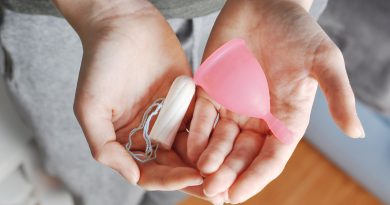VOCs and Feminine Hygiene Products: What You Should Know
Adapted from ‘Feminine hygiene products may expose women to toxic chemicals’ from AFP Relax on Yahoo! News. Available at: https://sg.news.yahoo.com/feminine-hygiene-products-may-expose-women-toxic-chemicals-165802599.html
Informed by the study ‘Exposure to Volatile Organic Compounds and Use of Feminine Hygiene Products Among Reproductive-Aged Women in the United States’ by Ning Ding, Stuart Batterman, and Sung Kyun Park for the Journal of Women’s Health, from Mary Ann Liebert, Inc. publishers. Retrieved from: https://www.liebertpub.com/doi/10.1089/jwh.2019.7785
New research from the Journal of Women’s Health exploring the relationship between the use of feminine hygiene products and exposure to volatile organic compounds (VOCs) has found that vaginal douches and feminine powders significantly increase the concentration of these chemicals in women’s bodies.
Questionnaires were used to obtain self-reported use of feminine hygiene products (including tampons, sanitary napkins, and vaginal douches and powders) by participants. The biomarkers of nearly 2,500 women between the ages of 20-49 were examined in order to determine the impact of feminine hygiene products on the concentration of VOCs in their blood. These chemicals are found in a wide variety of everyday products, such as fragrances, deodorant, and air fresheners. Despite their ubiquity, certain VOCs have been linked to a plethora of adverse health impacts including respiratory symptoms, reproductive implications, neurological disorders, and cancers.
Due to their composition, vaginal and vulvar tissues tend to be highly permeable to chemicals. Despite this fact, many feminine hygiene products are sold without disclosure of all product ingredients, or assurance of their safety. The study found that women who used a vaginal douche more than once per month had concentrations of VOC 1,4-dichlorobenzene (a potential carcinogen) 81% higher than non-users. Those who used just once a month still experienced an 18% increase in blood concentration of the compound over those who did not use vaginal douches. Additionally, women who used deodorizing vaginal powders within the previous year were found to have blood levels of ethylbenzene – another potentially harmful compound – that were 36% higher than those who abstained.
This study also highlights the often disproportionate impact of environmental toxins on minority and marginalized communities; black women were significantly more likely to use vaginal douches than other ethnic groups, and blood concentrations of 1,4-dichlorobenzene were highest among black and Mexican-American women.
The study authors concluded that feminine hygiene practices may provide an explanation for differences in whole blood VOC concentrations among their users, and recommended that women adhere to the guidelines outlined by the American Society for Obstetricians and Gynecologists, which suggest women refrain from using particular feminine hygiene products, including feminine powders and vaginal douches.



